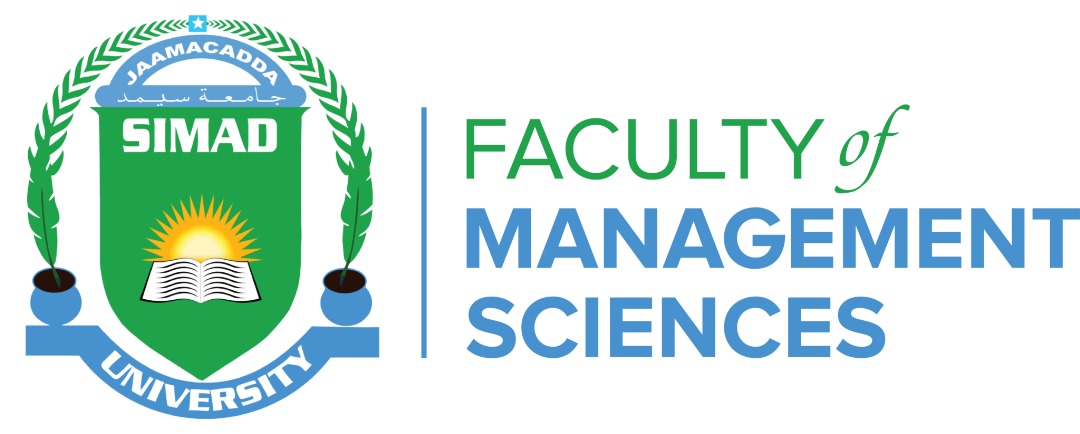Banking and Finance
Introduction
This program is designed to equip students with a background of banking and finance concepts, as well as knowledge and skills that allow for practical application in the modern-day workplace. Students are prepared for a wide-array of careers in financial sectors, including financial consultancy, stock broker, commercial and investment banking, securities commission and central bank. Graduates of this program will learn how to harness their analytical skills to seek solutions via creative ideas. Students will also learn how to polish their interpersonal and communication skills.
Program Goals
The program seeks to promote knowledge and awareness of banking and finance principles, real world perspectives; analytical and logical thinking, problem solving, communication skills and team work; scholarship; foster excellence in teaching; acquire and disseminate business and management knowledge; and produce graduate in banking & finance who possess the attributes and skills that are needed to thrive in a technological and knowledge-based economy.
Program Objectives
The Bachelor of Banking and Finance (BS) program objective is to prepare students to think critically and finding new ways to improve the industry. Students learn to communicate effectively on all levels and acquire leadership skills in the banking industry to become an initiator of change by making complex and difficult decisions using modern finance, marketing and management analysis methods.
Career Opportunities in Banking & Finance
With a degree in banking & finance, students can pursue the following careers:
Treasury, Risk manager, Financial consultancy, Securities manager, Account Manager, Assistant To Financial Controller, Associate Consultant, Bank Manager, Banking Officer, Credit Manager, Credit Risk Analyst, Finance Officer, Financial Analyst, Financial Assistant, Financial Controller, Financial Services Representative, Funds Manager, Funds Processing Administrator, Insolvency Administrator, Premium Analyst, Policy Analyst, Loan officer, Branch manager, Trust officer, and Mortgage banker.
- Completion of secondary school with a minimum overall average of 50%
- Should bring the original and a copy of the secondary school certificate
- Should bring six (6) passport-size photos with a white background
- You should bring the original copy of a letter of good conduct issued by your secondary school
- You should bring a sponsorship letter from your guardian
- Should successfully pass an admission interview and/or test
- Pay non-refundable Processing and ID card fees of USD 50 (bank draft)
UNIVERSITY COURSES
- English I
Fundamentals of Computers
Arabic Language I
- Arabic Language II
- Islamic Studies I
- Islamic Studies II
- Study Skills
- English II
- Computer Applications and Technology
- Principles of Management
- Communication Skills
- Research Methodology
- Critical Thinking
- Somalia Studies
- Conflict Resolutions
- Graduation Project
FACULTY COURSES
- Commerce
- General Mathematics
- Business Mathematics
- Principles of Accounting I
- Principles of Accounting II
- Introduction to Business Org
- Cost Accounting
Business Statistics I
Business Statistics II
- Business Law
- Microeconomics
- Macroeconomics
- Introduction to Research Methodology
- Principles of Marketing
- Principles of Finance
- Human Resource Management
- Quantitative Analysis in Decision Making
SPECIALIZATION COURSES
Principle of Banking
- Bank Management
- Banking Ethics
- Principles of Insurance
- Corporate Finance
- E-Banking
- Entrepreneurial Finance
- Money and Banking
- Islamic Economics
- Public Finance
- Islamic Financial Institutions
- Principles of Financial Markets and Institutions
- Risk Management
- Financial Econometrics
- Commercial Banking
- International Managerial Finance
- Investment Analysis and Portfolio Mgt
- Islamic Banking and Finance
- Real Estate Finance
- Project Finance
Full time: 5 Years
Tuition Fee: $315.00
Additional Charges (e.g., services, facilities): $30.00
Total per Semester: $345.00
This policy applies to all students, these include: part-time and full-time for both undergraduate and postgraduate and any other person enrolled as a student at the University:
Option one: At the beginning of the semester, all semester fees can be paid in full.
Option two: At the beginning of the semester, students should pay 30% of semester fees before he/she registers for the class. In the second installment, 40% of the semester fees should be paid before the midterm exam. The remaining 30% of the semester fees should be paid before the final exam.
After payments of second and third installments, students are eligible to get their clearance cards for midterm and final exams.
Fees Collector officer will be responsible to check fees default when he/she gets a report from the head of the cash unit.
SU will not refund any fees paid unless the student has no remaining semester.
Students and sponsors who unintentionally or intentionally deposit fees will not be refunded but will be forwarded to the next semesters.
Upon graduation period, all extra fees balance should be refunded to the students.
Any student who temporarily or permanently breaks his/her study can request an extra fee refund.
Head of Cash Unit should check the activities of the sponsors.
Bank Accounts
Premier Bank: 20300001001
Dahabshiil: 1822
Salam Bank: 30027598
Idman Community Bank: 7401005
IBS Bank: 1820
The SU academic year consists of 42 weeks split into two semesters of 18 weeks each, the first beginning in August.
